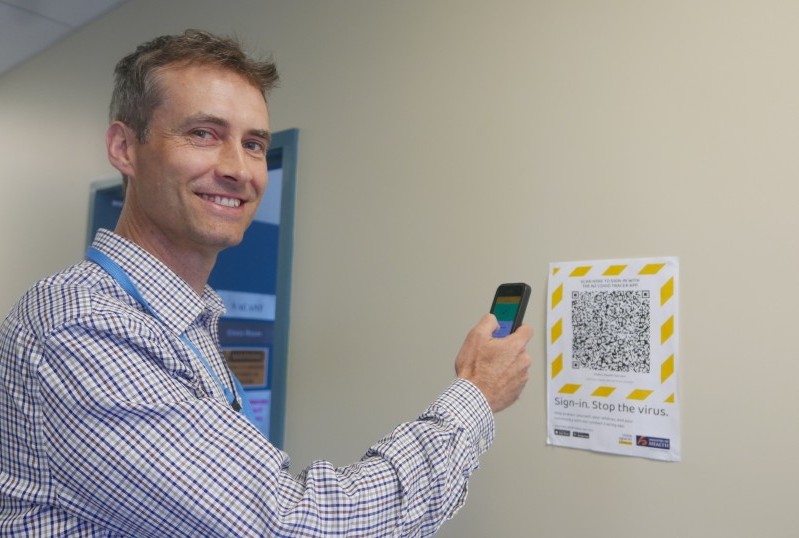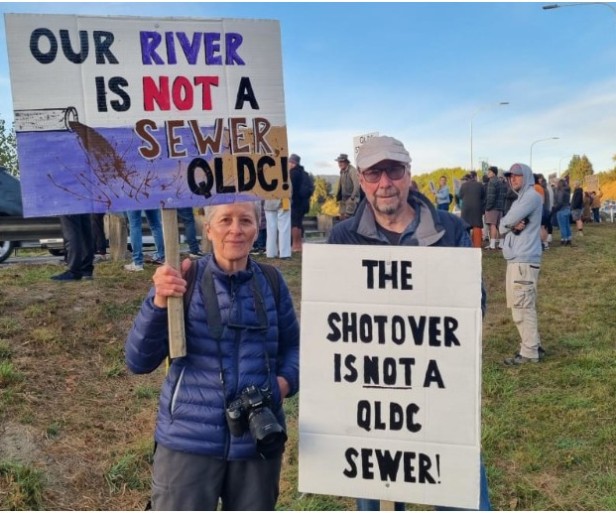Hand sanitizer warning over bug

Health officials are warning Queenstown residents that hand sanitizer is ineffective against the crypto bug, as the number of cases increases again.
Dr Michael Butchard, Medical Officer of Health, confirmed there have been four new confirmed cases of cryptosporidium over the past 24 hours, with the total now at 21.
A source of infection has yet to be identified, but investigations are ongoing.
"Alcohol based hand sanitizer does not kill the cryptosporidium bug or stop the spread of the microscopic crypto cysts," Butchard says. "Hand washing is the best way you can help stop the spread of crypto."
Butchard says people can use water straight from the tap to wash their hands but they need to use plenty of soap, wash for at least 20 seconds and drying them thoroughly with a clean towel.
"It is recommended that health professionals and food handlers wash their hand in water that has been boiled. People should also use boiled water to brush their teeth."
Meanwhile, the best way to clean down surfaces is to use products that contain hydrogen peroxide. Chlorine and bleach based products will not kill the crypto cysts.
Anyone with symptoms of diarrhoea and/or stomach cramps who lives or works in Queenstown or Frankton, or has visited after 18 August, should call their GP or health provider to arrange testing.
"Please do not show up with a sample without having first talked with your healthcare provider."
Residents, visitors and businesses on a boil water notice, should boil water in advance if they are able to, especially with the current weather warnings for the Queenstown area.
"Plan ahead in case of power cuts."
Water should be boiled for one minute and stored in a clean container with a lid.
Public Health advice remains the same:
How to help stop the spread of infection
The best thing you and your whānau can do to stop the spread of cryptosporidium (crypto) infection is to practise good hand hygiene. This means washing your hands with soap and water for at least 20 seconds and drying them thoroughly with a clean towel:
- After using the bathroom, changing a nappy or helping others use the bathroom
- Before eating or cooking
- After handling an animal
- After gardening, even if you used gloves
- When caring for someone with diarrhoea
Other ways to help stop the spread of cryptosporidium infection are:
- Stay home or keep young children home when you or they have an active case of diarrhoea
- Don’t drink untreated water
- Shower before using recreational swimming facilities to wash away any potential Cryptosporidium organisms on your body
- Don’t swallow pool water
- Wash all produce before eating it. Peeling the skins will also reduce your risk
- Take young children at the pool to the bathroom frequently
- Change children’s nappies often
- Stay clear of the water (swimming pools, spa pools, lakes and rivers) if you or your children have diarrhoea. Stay out of the water for a full two weeks after the diarrhoea subsides
What to do if you have symptoms
The most common symptom of crypto infection is smelly, watery diarrhoea and stomach cramps. If you live in the Queenstown area or have visited there recently and are experiencing these symptoms, please call your GP and inform them.









